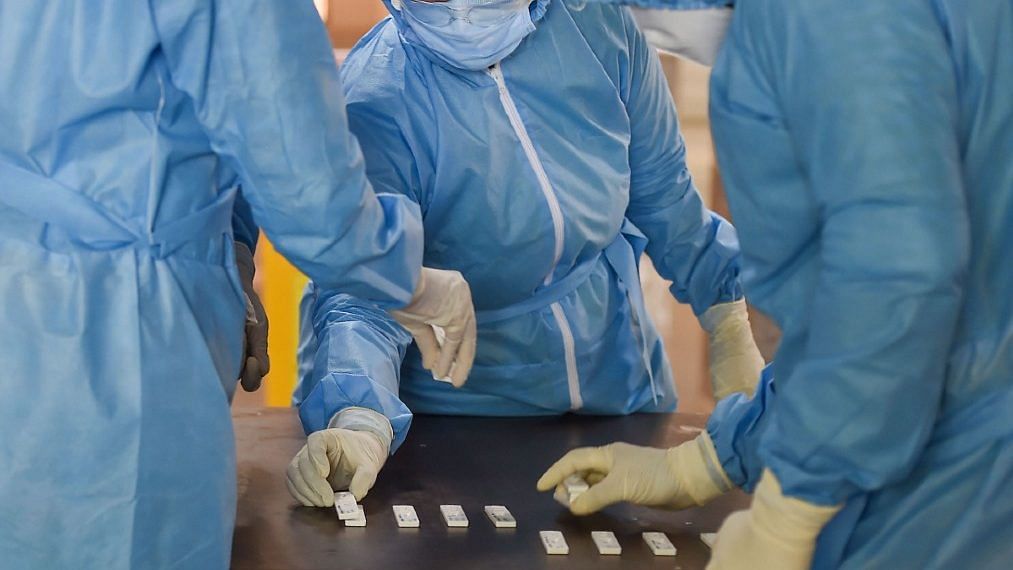New Delhi: Scientists at the National Institute of Virology in Pune have successfully developed a rapid test kit that can detect antibodies that the body develops in response to SARS-CoV-2.
“This robust test will play a critical role in surveillance of proportion of population exposed to SARS-CoV-2 infection,” Dr Harsh Vardhan, Union Minister of Health and Science and Technology tweeted Sunday night.
National Institute of Virology, Pune has successfully developed the 1st indigenous anti-SARS-CoV-2 human IgG ELISA test kit for antibody detection of #COVID19 .
This robust test will play a critical role in surveillance of proportion of population exposed to #SARSCoV2 infection pic.twitter.com/pEJdM6MOX6
— Dr Harsh Vardhan (@drharshvardhan) May 10, 2020
The test is based on what is known as Enzyme-Linked Immunosorbent Assay (ELISA), which is designed specifically for screening large numbers of specimens at a time, making them suitable for detecting the spread of the disease in a large population within a short span of time. ELISA has been used previously to detect antibodies to HIV, syphilis and Zika virus.
The ELISA test involves adding a specific antigen — a molecule that is present on the surface of a pathogen — to the blood sample. If the blood contains antibodies to the antigen, the two will bind together. Observing this reaction allows scientists to determine if the blood contains antibodies.
In the Twitter thread, Harsh Vardhan called the test the first “indigenous anti-SARS-CoV-2 human IgG ELISA test kit” also said that the kit was tested at two sites in Mumbai and was found to have high sensitivity and accuracy.
“Besides, it has the advantage of testing 90 samples together in a single run of 2.5 hours, so that healthcare professionals can proceed quickly with necessary next steps on their patients’ triage paths,” he added.
Also read: Delhi govt tells hospitals to update Covid death data in ‘timely manner’ as mismatch emerges
ELISA will detect immunoglobulin G antibodies
Antibody tests are not used to detect Covid-19 infection in humans. Rather, they help detect the presence of antibodies that attempt to fight off the virus. The test helps estimate what percentage of the population came in contact with the virus and how far it spread.
When exposed to a pathogen, our bodies produce different types of antibodies.
NIV’s ELISA test can detect immunoglobulin G (IgG) antibodies, which are the most common type of antibodies found in blood circulation once the immune response against an infection kicks in. However, it may take two to three weeks to develop these antibodies in response to a pathogen.
This means that if a person is tested immediately after coming in contact with the novel coronavirus, the test may not reflect accurate results.
Harsh Vardhan said that the technology has been transferred to Indian pharmaceutical company Zydus Cadila, which will be responsible for the mass production of the test.
The Drug Controller General of India has granted commercial production and marketing permission to Zydus, he added.
Also read: Sunlight can’t cure Covid-19, but don’t dismiss its healing powers
